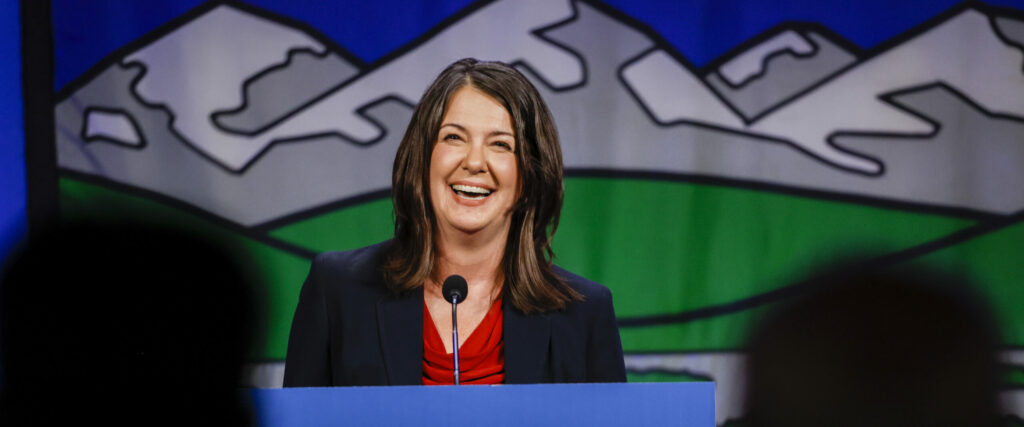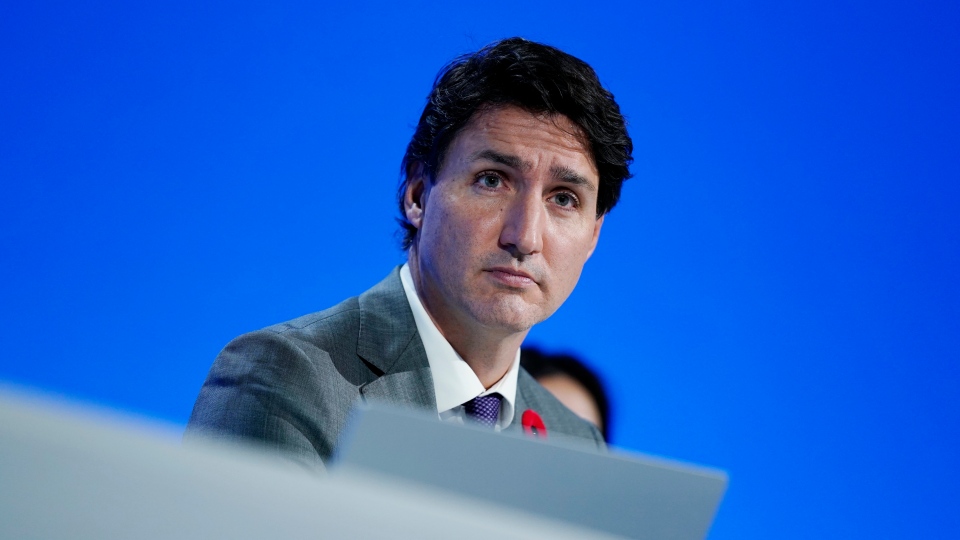For years the Canada’s Liberal administration under Justin Trudeau have been touting their carbon tax as the best thing since sliced bread or possibly bread itself: efficient, effective, and popular. The last has become clearly untenable and the former was never a sensible claim since those economists who favour carbon taxes want them to be a substitute for a hoorah’s nest of regulations not an addition to it. But now comes the sad news that it and its red-tape buddies didn’t even work. Even with economically devastating and sanctimonious COVID lockdowns, Canadian GHG emissions rose from an estimated 686 million tonnes in 2020 to 698 million in 2021 and then 708 million in 2022, the latest year for which the feds have numbers.
Like many politicians, Canada’s prime minister has a sublime confidence in his own capacity to achieve wonderful things that is not, how shall we put it, evidence-based. Long in the fang after eight years in office, he resists all suggestions that he step down, instead crowning himself the only man who can save Canada from the forces of evil who want to oppress women and gays while burning up the planet:
“Are we a country that will choose to move backwards in the fight against climate change? To move backwards in the rights of women and LGBT communities? Are we going to be a country that invests less in green growth? […] Because that’s all that the conservatives are proposing.”
Sunny ways indeed. But what if you are going backward in the fight against climate change anyway because your carbon tax, for all the hardships it imposes on citizens when heating their homes and filling their vehicles, isn’t cutting emissions even in company with all the regulations, subsidies and other heavy-handed interventions? Then what?
As the Toronto Sun noted tartly in an editorial, the latest tally:
“means Canada is moving further away from Trudeau’s target of reducing emissions to at least 40% below 2005 levels by 2030.”
It also means he was completely wrong about what his policies would do, are doing and, presumably, will do.
He’s not alone. In her ongoing retreat from reality, Trudeau’s deputy and also his finance minister, once a public intellectual world-famous in Canada, now makes fantasy claims like:
“the investments that Canada is attracting today are coming to Canada in large part because foreign investors recognize that we have a price on pollution and we have a strong climate plan and that means they want to be here and make stuff here in Canada and create good jobs here in Canada”.
In large part? Where did that one come from? Who ever called her up and said wow, your energy is artificially expensive, where do we sign? Yet on she goes, also insisting that:
“The only way for us as an open trade-exposed economy, to have an economic plan actually work, to actually be able to attract foreign investment, to actually be able to sell what we produce, is to have a strong and credible climate plan”.
Um and do you? She thinks so, approvingly quoting her colleague Jonathan Wilkinson, the Minister of Energy and Natural Resources (formerly of Environment and Climate Change and evidently nostalgic for it), that:
“Climate change is altering our environment in a myriad of harmful ways that disrupts our daily lives and the Canadian economy. In this context, the federal government has developed an ambitious climate plan that is driving real results.”
Yes. Falling productivity, stagnant real wages outside the public sector and… what’s this? Rising emissions. Those results are real, all right. Just not the ones you were looking for.
As we’ve said before, the “backlash” against climate policy is driven partly by the real pain it is delivering. But also by the conspicuous lack of gain. It’s meant to improve the weather but none of them think the weather is improving or is about to. Instead Freeland in that same press release quoted her colleague Steven Guilbeault, the current Minister of Environment and Climate Change, howling that:
“Human-caused climate change is real and Canadians are now seeing the costly impacts in real time. Climate risks are hitting Canadians in their pocket books, their workplaces, their homes and it’s affecting their health. Changes in temperature, rainfall and snowfall are helping drive up the risk of drought and wildfires. We are taking measures to make Canadians safer by providing better early warnings of extreme weather events, and we’re also tackling the emissions that are fueling climate extremes.”
And by “tackling” they mean staring helplessly at them as they rise. As Blacklock’s Reporter noted, also tartly:
“National greenhouse gas emissions are up again despite Environment Minister Steven Guilbeault’s repeated claims of reductions, new data showed yesterday. Only two provinces, both opposed to the carbon tax, reported lower emissions year over year. ‘We are making steady progress,’ said Minister Guilbeault. ‘It is imperative that we keep up the momentum. We have a responsibility to take climate action.’”
What do politicians do when caught bungling a file? Lie, of course:
“‘We knew emissions were going to bounce back,’ Guilbeault told reporters.”
Oh yeah? Why didn’t you say something at the time? And what does “bounce back” mean? It is true, as the Sun’s Lorrie Goldstein wrote, that:
If these estimates are accurate, it means Canada’s emissions have been increasing since 2020, when the global recession caused our emissions to drop dramatically to 659 million tonnes, from 724 million tonnes in 2019.”
But did Guilbeault know they would drop due to recession, then revive during the lockdown and keep going up? And what else did you accomplish? Nothing.
That the weather is terrible and about to get much worse is crucial to their pitch. And we do not doubt the sincerity of activists who say things like:
“The warnings about global warming have been extremely clear for a long time, we are facing a global climate crisis it is happening ,we are entering a period of consequences”
What else can they say? That it stopped. That it never got here and the warnings were wrong? That it’s actually 30 years in the future so there’s no urgency and the science and the screaming were mistaken?
No, they’re cornered all right, in the public arena and inside their own heads. Nevertheless we do attempt to explain to them that since we’ve been getting these warnings for a long time now from politicians who continually claimed to be taking decisive action, in Canada at least since Jean Chrétien got climate religion back in 1997, the fact that they say the weather is still deteriorating, at an increasing pace, and then admit that they haven’t reduced emissions does undermine their equally strident insistence that only they can save us, this time for sure. As Blacklock’s also quoted Guilbeault:
“We need everyone to help drive down the emissions that are already fueling costly climate impacts.”
After over eight years with you in power claiming you were driving them down suddenly it’s us? And didn’t you say over and over that you already were, that you had this and indeed because you had it we should keep electing you?
According to a study from the C.D. Howe Institute (with which one of us has a family but not professional connection):
“Ontario is facing a potential $14.8 billion shortfall between funding for its net zero plans and its goals”.
Which sounds like a lot. But it’s more, because it’s not between its plans and its goals, it’s between the methods it wants to put in place and what it has the money to put in place. What will actually result, how near the methods will take it to its goals, is a whole other story and, given the latest Canadian numbers, not one that ends well.
According to the Institute’s press release, in “Mind the Gap: The Impact of Budget Constraints on Ontario’s Net Zero Plans” author A.J. Goulding warns that:
“Using contributions from taxpayers, residential and commercial “willingness to pay,” vehicle and heating electrification, electric vehicle gasoline cost savings allocation, and asset replacement, Goulding says annual available funding totals $14.2 billion against an annual need of $29.0 billion. This means there is a potential shortfall of $14.8 billion. ‘While we are in no way suggesting that the province will choose to fund it, this shortfall represents 7.2 percent of the 2023 provincial budget, which was $204.7 billion,’ says Goulding.”
In short, having blown a fortune on pointless measures, you now want us to do it again. But if it was all for less than nothing so far, why pay more?


